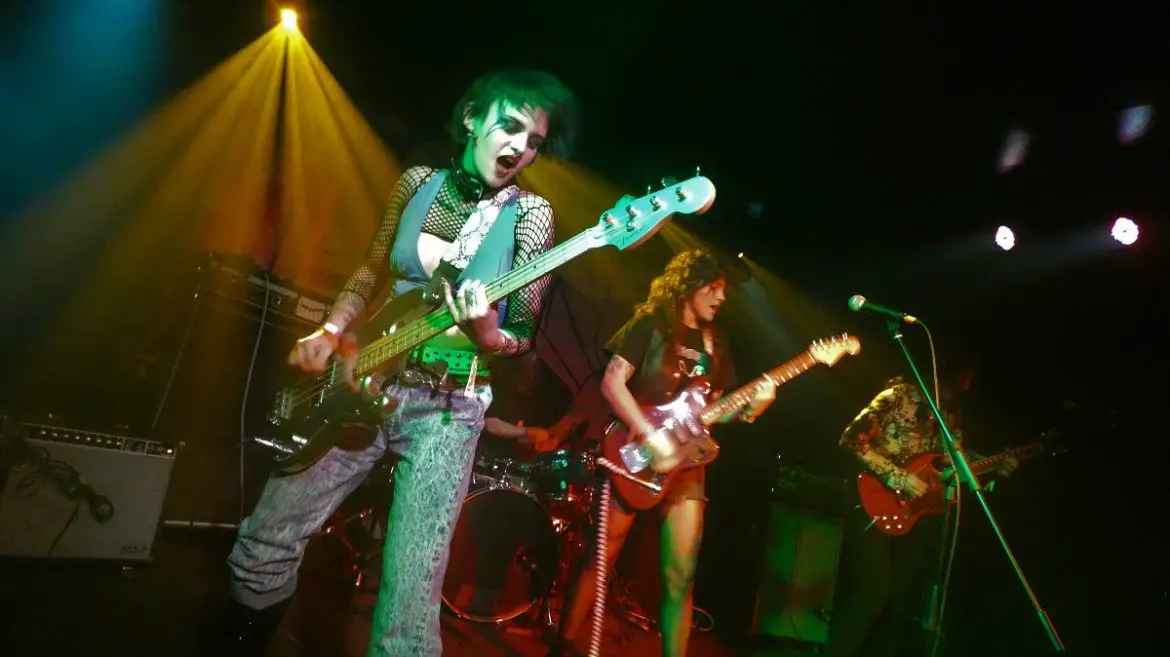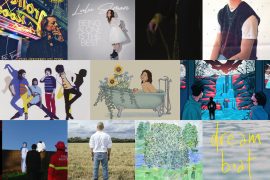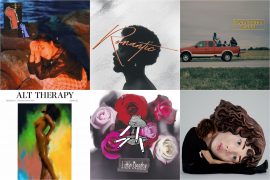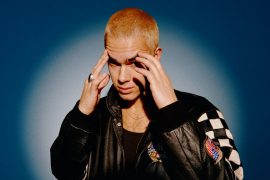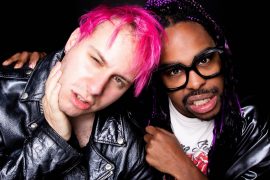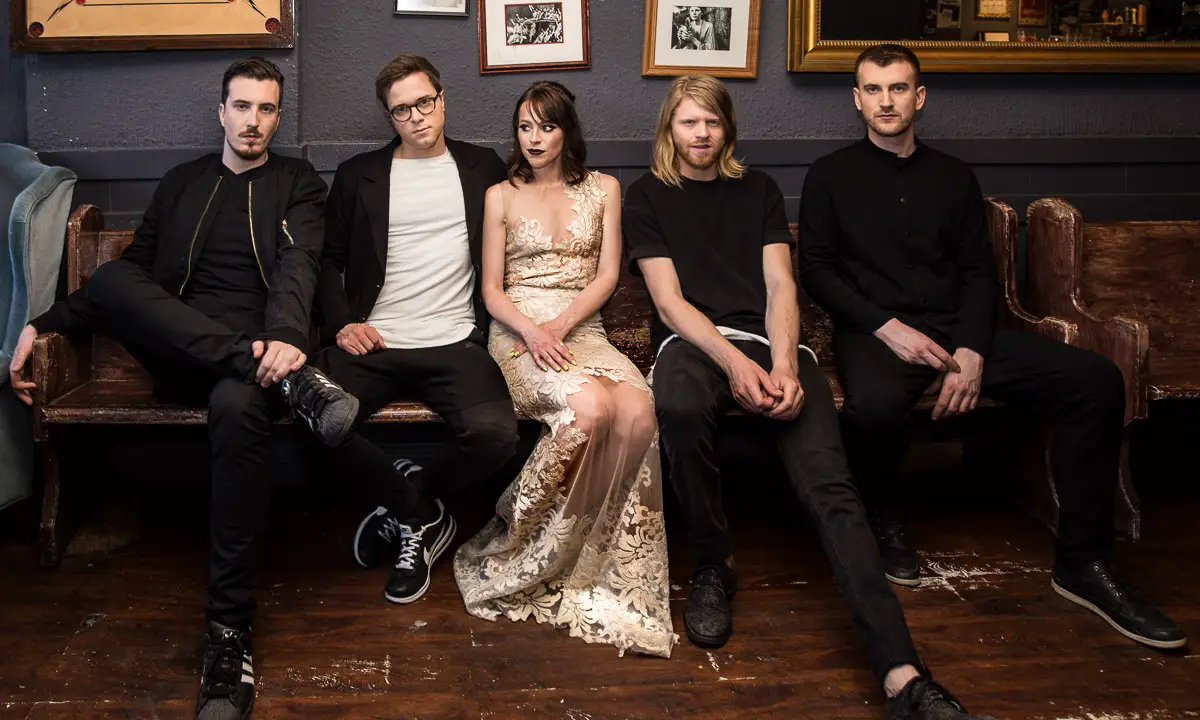Balancing the image and music of punk with an inner peace has always been the golden goose for any garage rock band, but Spoon Benders do so through a love of purpose and each other.
Stream: ‘Dura Mater’ – Spoon Benders
Someone once said, great artists steal, but whenever I’m writing my own stuff, I always think about all the influences I have. I want to sound like that a little bit. Otherwise, I just would not be able to write music.
– Leo Pastor, Spoon Benders
Impending doom is probably the best way to describe Dura Mater, the debut record by Spoon Benders.
It’s the same feeling you might receive when looking at the lobotomy picks next to the operating table, or a full moon peeking through the clouds. Often compared to Goggs, Pleasure Seekers, Black Sabbath and Thee Oh Sees, the real matter of fact is that doom has never sounded so groovy.
From the start of the record until its end, listeners are invited to mosh, headbang, bop and shimmy at a pace that won’t separate skull from spine.
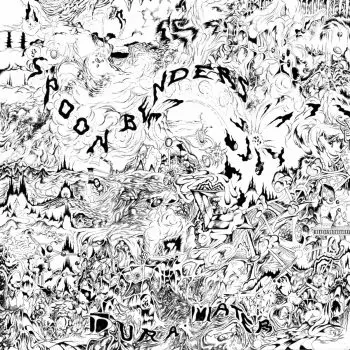
“He will find you, he will find you, he will find you, a-ha-ha-ha-ha,” Katy Black sings on “Voyeur.” Her voice lances through the track as if sung into a megaphone, echoes the trodden, mechanical groove from lead guitarist Leo Pastor, bassist Velvet and drummer AJ Herald.
“Right behind you, right behind you, right behind you, ha-ha-ha-ha-ha!” she sings, summoning the ghost of Jack the Ripper upon her listeners. The Victorian gloom makes all the more sense when considering that Spoon Benders hails from Portland, Oregon, a city with a color pallet of gray on darker gray during a good portion of the year.
But every once in a while, the city blossoms into something unabashedly beautiful despite its thorns. And Spoon Benders, despite all their thorns, constitute something as gorgeous as they are groovy.
Formed in 2018, Black had moved to Portland to study neuropsychology, only to find herself pursuing music with AJ Herald in the latter’s garage. Pastor came into the fold after Black visited Olympia with friends. Pastor, by chance, had planned to move to Portland only a week later. No stranger to the service economy hustle, Black found herself collecting friends-turned-bandmates from each location. That’s how she found Herald, as well as Velvet and Harper King, the band’s photographer.
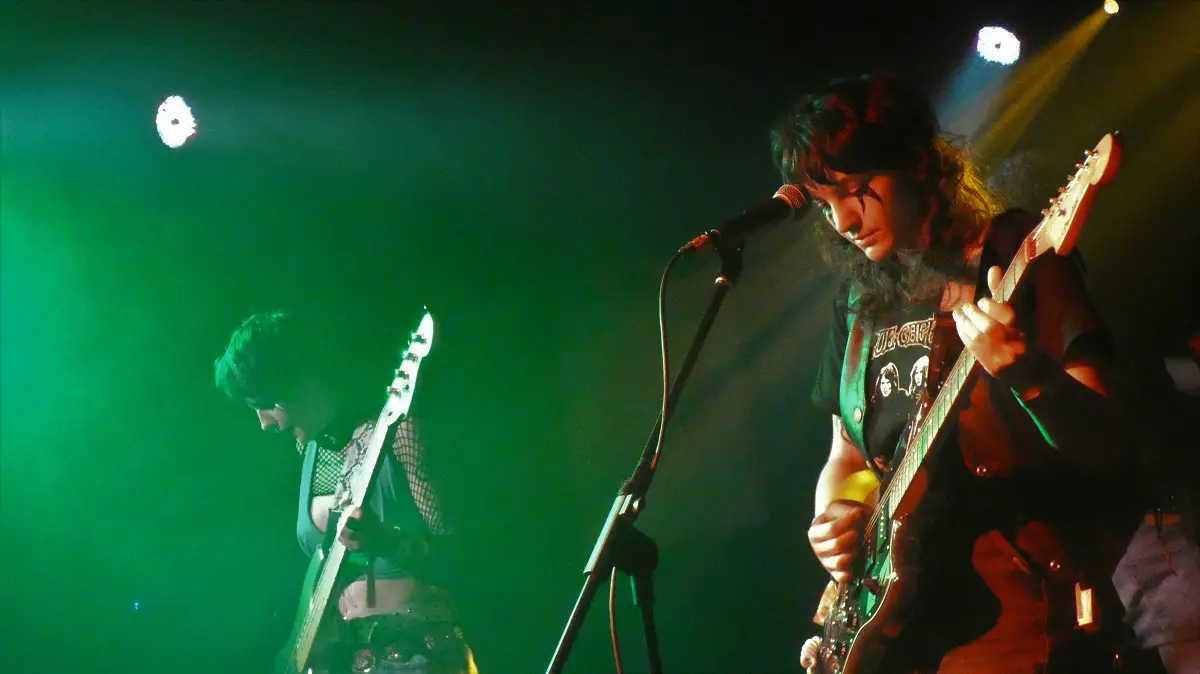
Truthfully, their serendipitous story of formation finds striking parallels with that of Led Zeppelin’s: Everything just fit together without a second thought. And it translates into the music.
There’s no bullshit about the face of a revolution, no convoluted evolution from rock’s basic premise, no sanitized production and technical wizardry. As Pastor says, it would be too clean akin to the latest offerings of Deep Purple or Scorpions.
Instead, Dura Mater yearns for that fuzzy low fidelity muss. If it sounds slightly thin and teasing an audio hiss, it’s because the Tascam 388 is a vintage piece of tape recording technology. If it sounds roomy and capacious, that’s because it was recorded in the basement of a venue called The Convent. It’s not about just recording the sound straight from guitars, bass and drums, but the reflections bouncing off the concrete. What results is a melange of every bit of classic, Seventies hard rock that every teenager with a bad attitude has ever loved.
Try as we might to enjoy the new stuff, part of the reason every boy and girl falls in love with this classic host of Seventies hard rock comes from its messy, organic, low fidelity environs. Or perhaps it’s just the image of a piss-and-vinegar exterior we find so intoxicating. The thought that an Iggy Pop lifestyle might not only be attainable, but desirable. Of course, if we have any sense, this is followed by the crushing disillusionment that it is a shield used to protect an inner fragility.
In my head I was like, “Oh, if I want to be cool, and do all this shit, I got to do drugs and party all the time.” Nah. Just loving my band, and sitting with our dogs in front of the fireplace and shit, that is like, my favorite thing now.
– Velvet, Spoon Benders
On “Layla,” Black dispels the notion that the lyrics need be as tough as the music loud, singing about the despair of possibly losing a family member to mental illness. The fear of not knowing what has happened or what could happen punctuates music that wants to shred as hard as humanly possible. Velvet’s bass looms under Leo’s guitar, Herald’s drums thump and pop with pace. When the music finally explodes that weight of fear, “Layla” transforms into the most liberating mosh for your life.
Balancing this image of glammy punks with the heavy music of doom and an inner peace has always been the golden goose for any hard rock band.
And it’s part of the reason which made Black, Pastor, Velvet, and Herald such pleasures to speak with. It’s not about the image, or the revolution, but a wholehearted love for each other and the music they make. That’s not even hyperbole. This seemingly wild child four-piece love spinning a melodic yarn with each other as much as they enjoy eating out or sitting by the fireplace, giggling with their dogs. And they absolutely did not give a shit if listening to Christina Aguilera makes them any less in a revolutionary’s eyes.
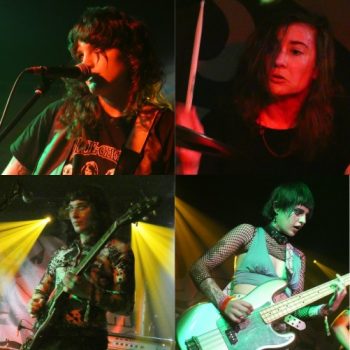
That’s also not to say they are bubbly and effervescent, looking for any and all reasons to know everyone, but chatting with them during Treefort 10, we ran the gamut. Give them a question about their choice of music or what makes a punk and they will run with the effects each has on their particular contribution to their collective efforts.
Afterwards, when their sweaty, jam-packed set at the Neurolux came to an electric finish, the band collapsed into a cuddle puddle and the crowd cheered so loud, my ears still rang with early onset tinnitus the next morning.
Spoon Benders’ first single of 2022, “Dichotomatic,” is set to release this Friday, August 5.
Jamming is just the quickest, easiest way for us to all connect with each other in that “here-now” moment. Whatever idea comes to you in that one second. And that fluid thought is that one of the sickest parts of being in a band; I couldn’t imagine being in a solo project.
– Katy Black, Spoon Benders
— —
:: stream/purchase Spoon Benders here ::
Stream: ‘Dura Mater’ – Spoon Benders
A CONVERSATION WITH SPOON BENDERS

Atwood Magazine: What have you been listening to?
Katy Black: Recently, I’ve been listening to Dry Cleaning and I’ve been listening to NEU! I was late to the game on krautrock and prog. And then I always listen to Miles Davis a lot. Pretty much the Live-Evil album. It’s awesome.
Leo Pastor: I’ve listened to lot of like 70s hard rock, recently. I love UFO, Scorpions, Deep Purple. It’s the stuff I grew up on. I stop listening to it for a while and then just getting back into it. It’s a main source of inspiration for guitar playing.
Did you listen to their recent record, Turning To Crime?
Leo Pastor: I did not. I usually don’t tend to listen to like older old bands new stuff because the production is too clean. I just like how the older production sounds. The Scorpions did just put out a new album as well, but I tend to shrug it off.
AJ Herald: Just wait until the production gets even better in 10 or 20 years and then listen to the album that came out in 2022. This is gonna be a hard left. I’ve been listening to Christina Aguilera his new album called La Fuerza. The LP is only six songs and it’s all in Spanish and I just love it. It’s super beautiful. It’s really poppy. Obviously, it’s Christina Aguilera.
Do you listen to music for drums or are you trying to diversify what you're focusing on?
AJ Herald: Yeah. The drum listening is definitely there for sure. But more what pops out for me is the rhythm. Not necessarily individual or distinct hits or the sound of the drums—which is something that I will hear maybe three or four times after listening to the song—but it’s the rhythm that like really gives me that feeling that I want to move you know so that and then any sort of kind of poppy melodic hook it’s like a drug to me like I love it so much. It makes me feel happy to hear this you know smooth melody.
Velvet: For me, I’ve been listening to a lot of Big Black lately—Steve Albini’s band—I love the bass tone. Also a lot of Automatic and Nice and Power Plant and Death (the punk band) and Death (the metal band) and Slayer because why not?
Which forms of punk do you really enjoy?
Velvet: I’m kind of all over the place I love The Ramones, The Misfits, Dead Kennedys and like harder stuff like that and then some more like melodic punk to kind of everywhere
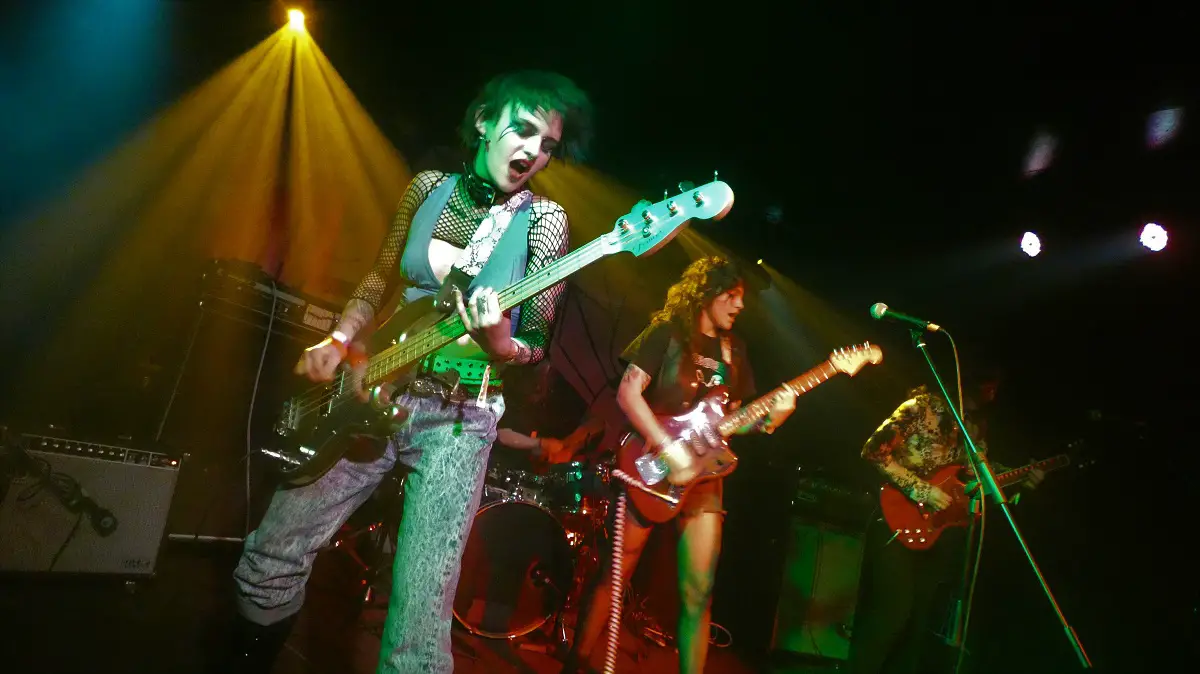
In another era, these would all be considered very distinct musical styles and there would be a wall between punk, psych rock and progressive rock. What about these genres clicks together for you?
Velvet: I think part of it has to do with we all have pretty distinct music tastes and like we like a lot of the same stuff. But we kind of just bring like our own, you know, passions and stuff into it when it comes to music. So I don’t think it was necessarily like a super like thought out thing in my mind, it was just what we love. And so our reps just kind of turned into that
Katy Black: Psych is an awesome avenue that you can go down to accessorize a genre if you’re using different effects, or jamming a lot. It’s kind of neutral in the way that you can have that psych feel with lots of delay, or long jams or whatever and then it can move into a doom; it can move into punk; it can move into rock; it can move into a dance beat. It’s just a really immersive sound.
You feel like it's the river that bleeds into all things?
Katy Black: Yeah, I think that’s like a commonality. We love Thee Oh Sees and we love the psych bands from the 70s and 80s. And they also genre-bended. Genre-bending is kind of the main thing that we naturally do in order to not get bored of ourselves, and challenge ourselves. Not just to, like, jack off and do random different genres, just cuz. It makes our lives a lot more interesting. And it pushes us a lot more. That’s why it’s so rad that we all come from like really different musical backgrounds. Because we naturally have different takes on it. And if I were to bring a riff in to the practice space, like naturally, that’s going to turn into a completely different song within the hour. Spoon Benders is all of our conjoined produce, baby.
Are you workshopping for most of your songwriting?
Katy Black: Yeah, in practice, especially if we need to run through the set for a specific show… getting our ears into that mode of being empathetic towards each other’s playing. Jamming is just the quickest, easiest way for us to all connect with each other in that “here-now” moment. Whatever idea comes to you in that one second. And that fluid thought is that one of the sickest parts of being in a band; I couldn’t imagine being in a solo project.
When did you first meet and how did Spoon Benders come together? Where did everybody meet everybody?
Katy Black: I moved to Portland, Oregon, in 2015, when I went to PSU to get a degree in neuro. And I was managing a coffee shop, called Fillmore Coffee. AJ was a dog walker at that time, and that was one of her spots in the mid-morning that she would go to. And we started talking. Just connected with her really quickly.
(It’s not often that I connect with people immediately like that, but every single time that’s happened in my life, it’s been with the people in this room and that alone, and I’ve, like, tried to keep them for as long as I have and now we live together.)
I told AJ I’ve been a musician for a while, and that we should jam some time. she was a drummer and she wanted to jam I’d actually never picked up a guitar before. I had no idea how to play. So I spent the next two weeks leading up to us first hanging out learning how to play and then we started Spoon Benders in AJ’s garage at the time.
Went up to Olympia to see Leo’s band. I was just touring up there with my friends just for something to do and I saw her; had the same feeling, told her that we should jam some time and then she said she was moving to Portland the next week and it just worked out perfectly. Later on started working at Old Town Music and Velvet got hired right after. I got that immediate feeling for Velvet — I’ve had a lot of jobs — started working at Seven Virtues Coffee. Harper (our photographer) was working there with me, got that feeling, she’s with me now.
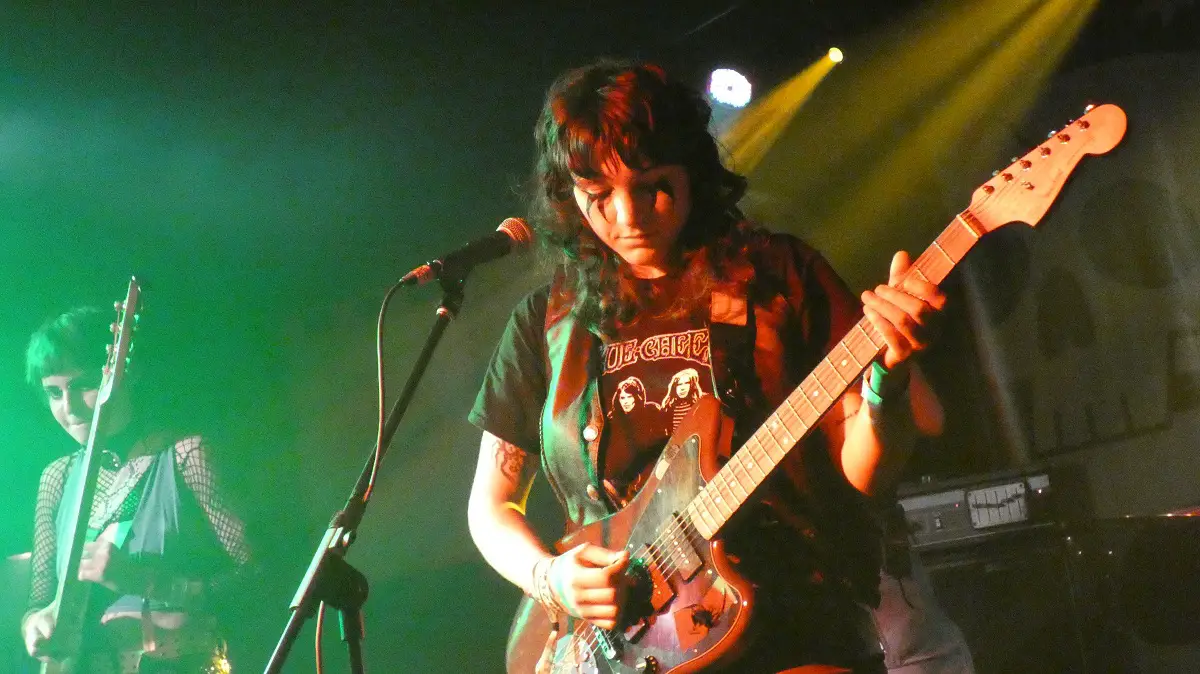
Is it sort of like an Allman Brothers situation? And it's like a music madhouse?
Katy Black: We don’t play in the house. We’re actually clean, early bedtime, domesticated people. But we just love each other. So we live in this house together and buy a shit ton of plants and hang out with our dogs. And then we just go to the practice space, few days a week.
I’m always thinking about Spoon Benders. We’re always kind of thinking about it like a full time job. But the friendship element, it’s kind of more like That 70s Show than like a Frank Zappa, you-have-to-jam-all-the-time, and no eating and only coke kind of thing.
AJ Herald: That was challenging at first because Katy and I didn’t really have our boundaries where we worked together, live together and then managed to band together. So we’d find ourselves waking up on Sunday morning and running into each other and be like, “Oh, did you see that email? Do you see the 67 emails?” and give each other anxiety attack with constantly talking about our work. Just recently, we’ve set some nice boundaries in the house where right when we see each other in the morning, we’re not pinging each other for what needs to be done next.
Katy Black: That’s one of the main reasons why this band is really fun to be in. I love that other people like it. I’m really, really amazingly stoked on the reaction that we’ve gotten for this project. But I want to be happy first, I want to be having fun, I don’t want to just be a band that gives people a good time and then we’re just constantly working.
Having us be like a family and taking care of each other and having fun and not taking this seriously is a huge M.O. Really hard to do when you’re a DIY band because you’re doing everything on your own. It’s all on us. It’s completely full time but you forget to enjoy your friends when they’re like a coworker or a business partner. And then I find myself missing out on talking about poops and farts with AJ in the morning.
AJ Herald: ‘Cause you look at me and you see an accountant.
Katy Black: Yeah, how much money I got?
You mentioned that you were a neuro major. How does that inform your lyrics?
Katy Black: When it comes to the neuroscience element of my schooling, that was a very visually metal degree. You’re seeing a lot of videos or historical articles that are extremely gnarly and really amazing and beautiful. That combination of gore and beauty and that sacrifice that medicine has made throughout all these years is really inspiring.
Dura Mater is a neuroscience reference to the outward cortex of the brain. That’s kind of the protective mother of everything that you got going on for yourself, the shield of your entire neurosystem. Our entire brain is shielded by this tough leathery exterior. And then the Arachnoid Mater—another cool word—is underneath it holding your shit together, so that when you’re head banging nothing flies out of your nose.
One of the main songs that’s inspired by neuroscience is actually on the next album. It’s called “Edison’s Medicine.” I thought I thought of it first. But Tesla also has a song called “Edison’s Medicine.” Huge bummer; still keeping it. The feeling and the essence of the music and the album being ugly and beautiful at the same time is a very generalized inspiration from neuroscience.
But the actual topics of the lyrics—and I care a lot about my lyrics, I really care about them, I want them to be meaningful and good. And for people to connect with them—that’s mostly about individualistic trauma and individualistic experience.
Almost all my lyrics are from words that I find out of books that I enjoy, and then try to empathize with a storyline that connects with my own experience.
I definitely need a lyric sheet. I have gone to the Anthony Kiedis School of lyric listening, where it's not really what he says, it's more how he says it. When you are workshopping songs, what are you trying to look for when writing such visceral music? What do you feel is the most important part of your particular addition to the music?
Velvet: Probably dynamics. Dynamics are kind of at the forefront for us. And then I just love how the bass can either like progress the riff or add like little elements to the riff. I’m not a super like fill-heavy bass player, I like more to sit in the riff really well. It comes down to dynamics, note choices and tone for sure. But dynamics over most of it.
AJ Herald: Yeah, I second that dynamics are really important. And I think that that adds to when the listeners hearing the music, you get a certain feeling when the music is very low. And then when it changes drastically to something high, like wow, I can change your emotional state. I listen to pop music and I like r&b. And so I like to try to add those elements when I can. And then lastly, there’s something about the drums that I think are fun because you don’t have to play a straight beat. Using the drums how instruments are used in classical music to highlight other instruments and dance around the set, changing that timbre to match the other instruments is something that’s very fun for me to do.
Is there a particular drummer icon that you like or like, I can't get enough of that drumming?
AJ Herald: Oh, yeah, I could listen to Thomas Pridgen all day. He just floors me.
Leo Pastor: Me being the de facto lead guitarist of the band, I have to bring the firepower to the loud dynamics of our songs. Bring out the energy, especially for the audience listening to our songs. But also—because we’re a band that has two guitarists—leaving room for other things like Katy. So, a lot of time I don’t want exactly just play the exact same thing she’s doing. So I look for more of like a harmonic context or sometimes I’ll go into playing rhythm and playing the chords underneath, just to add a little bit of different emotion. You’ll hear the riff and it’s this vibe but then, if I add this certain chord, it can change the whole vibe of the song “with this one simple trick!”
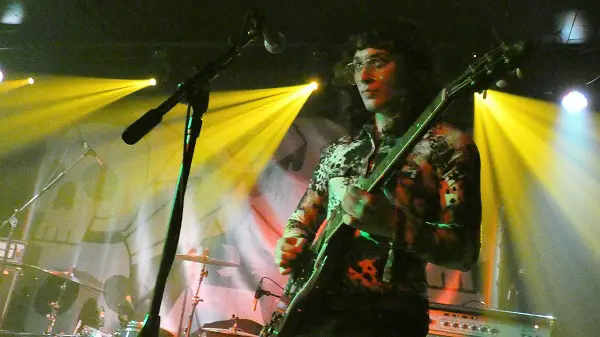
You talk about being domesticated. Of course, what people see is like the outward appearance, but do you have fun with people's kind of like assumption?
Katy Black: Yeah, it goes both ways, though. It’s either Bikini Kill, or we’re gonna destroy the green room. Sure, we love to play heavy and I like to give everything I can completely onstage. And then I’m going to bed, dude. I did my thing. I guess it’s very unconventional to play really, really heavy music and then do yoga in the morning, be respectful, take care of your people. The destroy all kind of attitude that punk has is totally sick. I’m not like a softy or anything. I just think being really cordial is also really important, just as human in and outside of the band.
Velvet: I think a lot of people have the idea that punk and rock and roll obviously goes along with drugs and stuff. And I had a struggle with addiction for a long time. In my head I was like, “Oh, if I want to be cool, and do all this shit, I got to do drugs and party all the time.” Nah. Just loving my band, and sitting with our dogs in front of the fireplace and shit, that is like, my favorite thing now.
AJ Herald: What always made the news about punks was them setting shit on fire and being very forward with their political thoughts and that’s fantastic and wonderful and vibrant, but there’s another part of punk for me that is connection with your community. When I met Katie and asked her if she wanted to play music, that was the reason, to connect and same with Leo and Velvet and working with Harper as well. Working with really anyone that we do, a photographer, an interviewer, a production coordinator, I’m looking to make a connection with you and see how can we have each other’s back? How can I help you do your job? How can you help me do mine? How can we put on a good show? How can we create a good experience with one another while we’re here together?
When it comes to songwriting, do you also isolate from other artists when songwriting or do you lift the gate?
Leo Pastor: It’s pretty hard to completely isolate yourself from other artists when it comes to writing since, nowadays, there’s so much music out there that it’s hard to not accidentally plagiarize someone else’s song. Someone once said, great artists steal, but whenever I’m writing my own stuff, I always think about all the influences I have. I want to sound like that a little bit. Otherwise, I just would not be able to write music.
Katy Black: Yeah, I have to listen to music in order to get inspired to write music. But something that I most easily take inspiration from is different cultures that have different equipment. I can’t play the sitar, dude. So I wouldn’t be able to emulate that perfectly at all. But the chord that they changed or having that transition that I’m like, “oh shit, what if they wrote it this way?” That’s the beginning of the riff for this new song. It’s really sick to be an artist and make some art out of thin air but I also think that what great writers, great musicians do is they’re reporters of life and they’re there. They’re reflecting what they’re seeing.
There’s another part of punk for me that is connection with your community… I’m looking to make a connection with you and see how can we have each other’s back: How can I help you do your job? How can you help me do mine? How can we put on a good show? How can we create a good experience with one another while we’re here together?
– AJ Herald, Spoon Benders
— —
:: stream/purchase Spoon Benders here ::
— — — —

Connect to Spoon Benders on
Facebook, Web, Instagram
Discover new music on Atwood Magazine
? © Ben Niesen
:: Stream Spoon Benders ::

